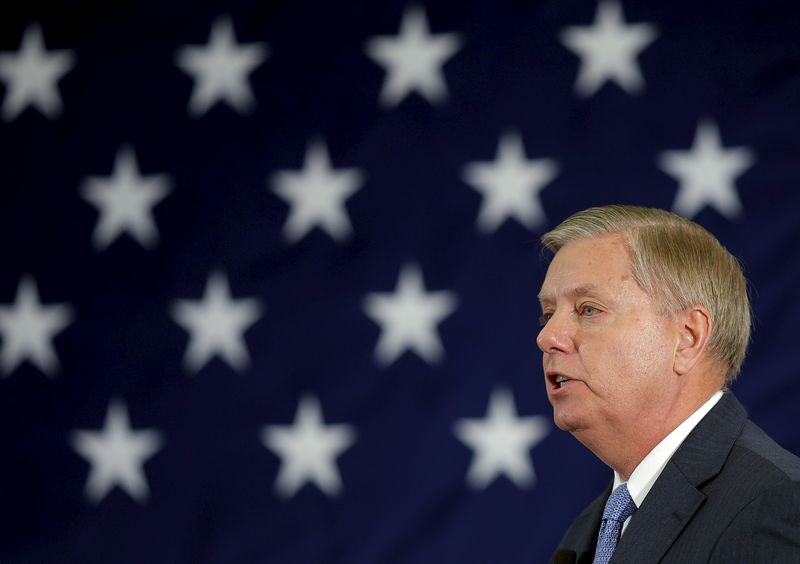By Andy Sullivan
NASHUA, N.H. (Reuters) - U.S. Senator Lindsey Graham has an unusual message for a potential Republican presidential candidate: He wants to stem the flow of unregulated money in politics.
That puts him at odds with much of his party, as well as fellow White House hopefuls who have taken advantage of weakened campaign-finance laws to aggressively raise money in the early months of the 2016 presidential campaign.
Many Republicans argue that restricting money is a way of suppressing political speech. Graham agrees with former Secretary of State Hillary Clinton and other Democrats that a 2010 Supreme Court decision that cleared the way for unlimited spending has given too much power to wealthy donors.
"We've got to figure out a way to fix this mess, because basically 50 people are running the whole show," Graham told Reuters at a gathering of Republican hopefuls in New Hampshire.
Wealthy donors are expected to be a bigger factor in 2016 than in 2012, when outside groups spent more than $1.3 billion. The network of conservative advocacy groups backed by billionaire industrialists Charles and David Koch, for example, is expected to spend nearly $900 million this time around.
Graham is a leading voice on foreign policy within his party and his disarming humor on the stump recalls Senator John McCain of Arizona, a close friend who was the 2008 Republican presidential nominee. Graham says he'll decide whether to run for president in the coming months.
So far, he is not much of a factor. A recent Winthrop University poll found him running fourth in his home state, with 55 percent of South Carolina Republicans saying they would not consider voting for him for president.
Graham said he will need about $15 million to compete in the crowded Republican primary campaign - far short of the $50 million or so that other Republicans plan to raise through their own campaigns and allied "Super PACs" that can accept unlimited contributions.
Like Clinton, who has called for campaign-finance limits but is expected to benefit from Super PAC money in her run for the Democratic presidential nomination, Graham said he would not refuse help from outside groups in this election.
Casino magnate Sheldon Adelson, who with his wife spent $93 million in the 2012 election, co-chaired a fundraiser to help Graham explore a presidential bid in March. That committee can not accept individual donations above $2,700.
Graham said the next president will have to take steps to rein in political spending.

"You're going to have money dumped in this election cycle that's going to turn off the American people," he told reporters. "There's going to be a need and a movement to try to control the money in politics."